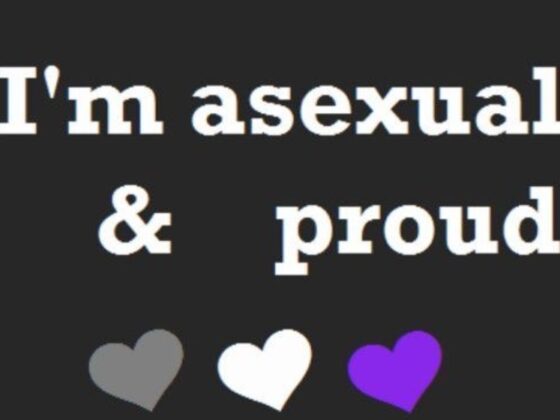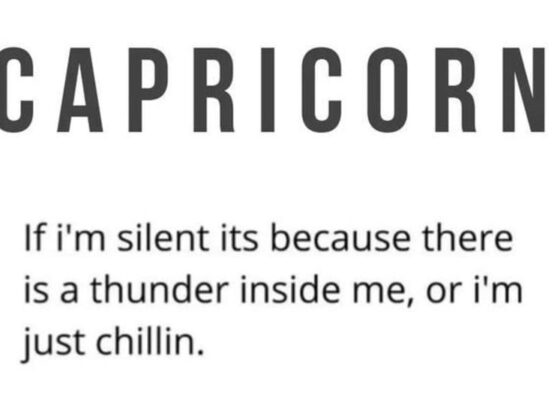Welcome to the world of modern relationships, where dating dynamics, intimacy, and connections are constantly evolving, and with them, a whole new vocabulary has emerged. Gone are the days of traditional labels and conventional norms; today’s relationships are more diverse, fluid, and complex than ever before. As urban dwellers navigate the fast-paced world of dating, love, and intimacy, new age ‘relationships’ vocab’ has become essential to stay abreast of the ever-changing landscape. From ghosting and gaslighting to cushioning and relationship anarchy, understanding these terms can empower individuals to communicate effectively, set healthy boundaries, and navigate the nuances of modern relationships. In this blog post, we’ll explore 42 modern relationship terms that you need to be familiar with to thrive in the urban dating scene. So, buckle up and let’s dive into the fascinating world of new age ‘relationships’ vocab’.
1. Ghosting: This classic term refers to the act of abruptly cutting off all communication with someone you were previously dating or talking to, without any explanation or warning. It’s like they vanished into thin air, leaving you wondering what happened and feeling confused and hurt.
2. Gaslighting: Gaslighting is a toxic behaviour where one person manipulates another by making them doubt their own perceptions, memories, or reality. It’s a form of psychological manipulation that can leave the victim feeling like they are going crazy or doubting their own sanity.
3. Benching: Benching is when someone keeps you on the back burner while they explore other options. They may show intermittent interest and attention, but never fully commit or make you a priority. It’s like being put on a bench and waiting for your turn, while the other person plays the field.
4. Breadcrumbing: Breadcrumbing is the act of leading someone on with just enough attention or affection to keep them interested, but never enough to actually commit or take the relationship to a meaningful level. It’s like scattering breadcrumbs to keep someone following, but never really leading them anywhere.
5. FOMO (Fear of Missing Out): FOMO is the fear of missing out on something better or more exciting, which can affect relationships. It’s when someone is not fully present in a relationship because they are constantly looking for the next best thing or feeling like they might be missing out on other opportunities.

6. Cuffing Season: Cuffing season is the time during the fall and winter months when people seek out relationships or casual flings to keep them warm during the cold weather. It’s like putting on a metaphorical “cuff” to stay attached to someone during the cosy months.
7. Slow Fade: The slow fade is when someone gradually reduces communication or interaction with you, without explicitly ending the relationship. It’s a passive-aggressive way of ending things without having a proper conversation or closure.
8. DTR (Define the Relationship): DTR is the conversation where two people discuss and clarify the status of their relationship. It’s the “what are we?” talk that determines if you are on the same page and have the same expectations for the future.
9. Haunting: Haunting is when someone from your past, like an ex, continues to interact with you on social media, even though the relationship is over. It’s like they are haunting you, appearing in your virtual life even though they are no longer present in your real life.
10. Catch and Release: Catch and release is when someone pursues you aggressively, only to lose interest as soon as they “catch” you. It’s like a fishing analogy where you are caught but then released back into the dating pool because they weren’t really interested in a committed relationship.
11. Mansplaining: Mansplaining is when a man condescendingly explains something to a woman, assuming she doesn’t understand, even if she has knowledge or expertise on the topic. It’s a form of gender-based condescension and patronizing behaviour that can be frustrating and demeaning.

12. Bae: Bae is a term of endearment that stands for “before anyone else.” It’s a shorthand way of referring to a significant other or romantic partner.
13. Cushioning: Cushioning is when someone in a committed relationship keeps other romantic options available, just in case their current relationship fails. It’s like having a cushion to fall back on if things don’t work out.
14. Relationship Anarchy: Relationship anarchy is a philosophy that promotes non-traditional and non-hierarchical relationships, where individuals have the freedom to define their relationships on their own terms without conforming to societal norms or expectations. It challenges the idea of conventional relationships and allows for more flexibility and autonomy in how individuals structure their connections with others.
15. Love Bombing: Love bombing is an intense and excessive display of affection, attention, and flattery towards someone at the beginning of a relationship. It’s like being showered with love and affection to the point of feeling overwhelmed or suffocated, often used as a manipulation tactic to gain control or establish a connection quickly.
16. Zombieing: Zombieing is when someone who previously ghosted you suddenly reappears in your life as if they’ve come back from the dead. It’s like they’ve resurrected from the past, reaching out after a prolonged period of silence.
17. Relationship Escalator: The relationship escalator is the traditional societal expectation of a linear progression in relationships, from dating to exclusivity to marriage and beyond. It’s the idea that relationships must follow a predefined path, and deviations from this path may be seen as unconventional or unacceptable.

18. Micro-cheating: Micro-cheating refers to small, subtle actions that may be considered a breach of trust in a committed relationship. It can include things like liking or commenting on someone else’s social media posts in a flirtatious way, keeping secret conversations with someone, or maintaining emotional connections outside of the relationship.
19. Emotional Labour: Emotional labour is the effort and energy put into managing and regulating one’s emotions in a relationship. It can involve being the emotional support system for a partner, listening to their problems, and providing comfort and care, often without reciprocation or recognition.
20. Relationship Anxious: Relationship anxious is a term used to describe someone who experiences significant anxiety or insecurity in relationships, often characterized by fear of abandonment, a need for constant reassurance, and a tendency to overanalyze or overthink relationship dynamics.
21. Ethical Non-Monogamy: Ethical non-monogamy is a consensual and honest approach to relationships where individuals have multiple romantic or sexual partners with mutual consent and respect. It includes various forms, such as polyamory, open relationships, and swinging, among others.
22. Catfishing: Catfishing is the act of creating a fake persona online to deceive others, often for romantic or emotional purposes. It involves pretending to be someone else, and using false identities or photos, to establish relationships based on deceit.
23. Relationship Anorexia: Relationship anorexia is a term used to describe a pattern of avoiding or withholding emotional intimacy and closeness in relationships. It can involve distancing oneself from emotional connections, being emotionally unavailable, or avoiding commitment.
24. LDR (Long-Distance Relationship): LDR stands for a long-distance relationship, which is a romantic relationship between two people who are geographically separated and maintain their connection despite the physical distance. It requires extra effort to maintain communication and connection over distance.
25. Thruple: A thruple, also known as a throuple, is a term used to describe a romantic relationship involving three people. It’s a consensual relationship where all three individuals are involved with each other, and it challenges the traditional idea of monogamous relationships.

26. Roaching: Discovering that your partner has been hiding multiple other romantic interests, often in the form of past or current partners, similar to how roaches scatter when a light is turned on.
27. Stashing: When one person in a relationship deliberately keeps their partner hidden from their family, friends, or social media, indicating that they may not be fully committed or serious about the relationship.
28. Slow fading: A gradual and subtle decrease in communication and interaction with a romantic partner, often resulting in the relationship fizzling out slowly over time without a formal breakup.
29. Kittenfishing: A milder form of catfishing, where someone presents a slightly embellished or altered version of themselves on social media or dating profiles to create a favourable impression, but not as extreme as a full-blown catfish.
30. Situationship: A relationship that lacks a clear definition or commitment, often characterized by ambiguity, uncertainty, and a lack of exclusivity, leaving one or both parties in a state of confusion or frustration.
31. Polycule: A term used in polyamorous relationships to describe the interconnected network of individuals involved in the relationship, which can include multiple partners, metamours (partners’ partners), and other non-monogamous connections.
32. Orbiting: When someone continues to engage with your social media posts, watch your stories, or keep tabs on your online presence after ghosting or ending a romantic relationship, creating a sense of lingering presence.
33. Thirst trap: Posting a provocative photo or content on social media to attract attention and compliments, often with the intention of gaining validation or romantic interest from others.
34. Vulturing: When someone swoops in to pursue a romantic interest immediately after a breakup or the end of a relationship, taking advantage of the vulnerability of the person who just ended a relationship.
35. Paperclipping: Similar to orbiting, this term refers to when someone who previously ghosted you reaches out with a random, unrelated message or interaction as if trying to keep the connection alive without addressing the previous ghosting.

36. Eclipsing: Adopting the interests, hobbies, or personality of a romantic partner, often to the point of losing one’s own individuality, and merging identities with the partner.
37. Relationship auditing: The act of constantly evaluating and assessing the health and progress of a relationship, often done through social media stalking, monitoring, or comparing with other relationships.
38. Instagrandstanding: Posting exaggerated or performative acts of love or commitment on social media to garner attention, validation, or admiration from others.
39. Quarantine buddy: A temporary or casual romantic partner or hookup during the COVID-19 pandemic, often driven by the desire for companionship or physical intimacy during periods of isolation or lockdown.
40. Ghost haunting: When someone who ghosted you continues to follow or monitor your social media, but avoids direct communication or engagement, leaving you feeling confused or unsettled.
41. Ex-ting: Purposely deleting or blocking an ex-partner from social media or other forms of communication as a way to move on and create healthy boundaries post-breakup.
42. Freeform relationship: A relationship structure that allows for flexibility, experimentation, and exploration, without adhering to conventional labels or expectations, and prioritizes open communication and consent among all parties involved.
As relationships continue to evolve and adapt to the changing times, new age ‘relationships’ vocab’ will continue to emerge. It’s important to stay informed, open-minded, and communicative in navigating the complexities of modern relationships. Remember, healthy relationships are built on mutual respect, communication, and consent, and understanding the language and dynamics of modern relationships can empower you to create meaningful and fulfilling connections.
So, keep yourself updated with the latest lingo, communicate openly and honestly, and prioritize your emotional well-being in your romantic endeavours. By staying informed and educated about these concepts, you can better navigate the complexities of dating, love, and intimacy in today’s urban landscape. So, whether you’re swiping left or right, sliding into DMs, or exploring non-traditional relationship structures, make sure to keep yourself abreast of the new age ‘relationships’ vocab’ and communicate with openness, honesty, and respect for yourself and others. Happy exploring the ever-changing landscape of modern relationships.
Love,
Team LadyInRoseGold




















